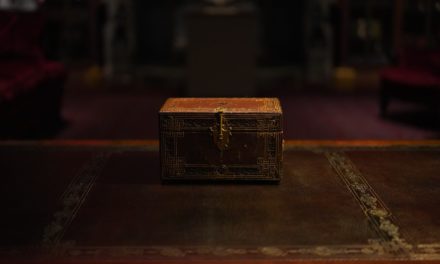Genesis 41:1–36: The Thing is Fixed by God
Introduction
The previous chapter ended with the redundant statement that the cupbearer not only failed to remember Joseph, but that he also forgot him (Gen. 40:23). Joseph gained a glimmer of hope by having made a connection to someone who could legitimately bring his case before Pharaoh himself—the only one with a high enough ranking to pardon Joseph for a crime committed against one of Pharaoh’s officers. This hope, however, died slowly over the course of “two whole years” as Joseph languished, forgotten in prison. By this long wait, Joseph endured his last, lengthy temptation to turn away from the Lord in despair. Humanly speaking, Joseph has run entirely out of opportunities to hope that his situation will ever change.[1] Remarkably, Joseph’s faith does not waver, in large part because he knows that his destiny is fixed by God, so that what God promised him through his dreams thirteen years earlier cannot be thwarted. In this story, we see that God alone gives true wisdom.

[1] Calvin, Commentaries on the First Book of Moses Called Genesis, 2:317–18.
Discussion Questions
1) What do you make of the “two whole years” that have passed since Joseph interpreted the cupbearer’s dream (v. 1)? How does this description of time enhance our understanding of the depth of Joseph’s suffering? Are there areas of your own suffering that have plagued you for an extended length of time? How have you coped with the ongoing suffering? What does Joseph’s story teach us to help us to remain faithful through long periods of suffering?
2) How does the Lord impress upon Pharaoh his need for wisdom? How does the Lord bring Pharaoh to the end of his own resources for wisdom? To what degree does this lack of wisdom create an opening for Pharaoh to take Joseph seriously, even though he is (from all outward appearances) only a Hebrew slave who has been in prison for a sex crime? What circumstances has the Lord used in your own life to bring you to the end of your confidence in own wisdom?
3) Where do the words “good” and “evil” (ESV: “ugly”) appear throughout the narration of this dream? How does the contrast of good and evil connect back to the beginning of Genesis (e.g., Gen. 2:17) and the end of Genesis (Gen. 50:20)? Where does Joseph fit into this ongoing theme of discerning between good and evil? How does Joseph’s role as a faithful prophet and wise man point those around him to God? How does he foreshadow our Lord Jesus Christ?
4) What does Joseph’s wisdom in the management of the coming famine teach us about prudent living in our own lives? Even if we do not have infallible prophecy about the precise nature of the suffering we will face, how might we prepare for the disastrous “evil” that we will face as we live in a fallen world? How does Joseph’s example give us a pattern for living with wisdom, thrift, and preparation in the midst of the “good” times of our lives?




